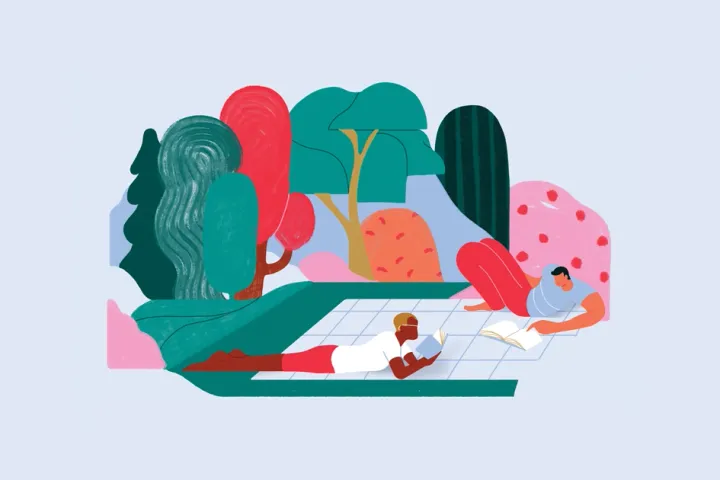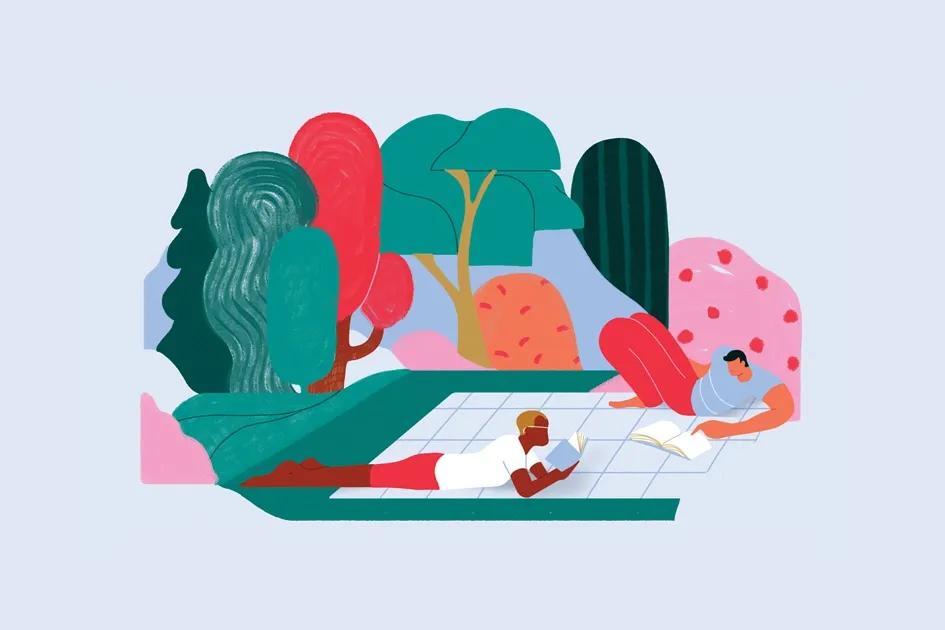I had no idea where I was going to preach that morning. I was in Ulaanbaatar, the capital of Mongolia. So I was thankful for the two people with me, Caron and Wayne, as we slowly bounced to the outskirts of the city. Together we were part of an eight-person entourage that came to teach in a school of ministry.
Soon we were in hillsides of white yurts, like a field of mushrooms that had popped up overnight. We were in the ger district. (Ger, pronounced “gair,” is the Mongolian word for the tent-like dwelling known as a yurt.) In the last decade, tens of thousands of nomads from the countryside have migrated to the capital each year looking for a better life. Most still lived in gers.

The road turned to half-frozen mud now. We lurched side to side, then came to rest outside a ger. Caron knew about this church. “It’s not even a year old,” she said as we climbed out of the van. “Most of the people here are new believers.”
I bent low to enter. Nearly 20 people were here already in the circular space. Young boys were coloring with crayons. I recognized my translator, Bagghi. We hugged and spoke while more entered behind us. The elders wore deels, the traditional robe; the younger ones wore jeans. We took each one’s hand, bowed respectfully before the elders, and found our place in the circle. The service began.
We did not know the language or the songs, but we recognized worship and joined in as best we could, lifting our shaky voices with theirs.
It was time for the sermon. They motioned me to a low table and two chairs, with Bagghi beside me. I spoke from the book of Jude about holding onto our faith despite challenges and disappointments, illustrating with stories from my life. The 23 congregants sat along the edges of the ger, listening intently. Everyone took notes.
After the final prayer, it seemed our time was over. I looked around at these faces. How could we leave so soon? Just then, three women whisked through the canvas door, bearing pots and dishes. In a few minutes, we were all seated again, drinking milk tea out of bowls, munching packaged cookies. More dishes came through the door: salad like a pickled cole slaw, then a steaming plate of fresh mutton dumplings. The ground mutton, slightly greasy, was tucked into a flour wrapping and then boiled. Aromatic steam rose into the air. I had no idea we were having lunch here. I knew these families had few resources. And I knew that dumplings were their favorite food, reserved for holidays and special guests.
We talked then for a long time. With my mouth full of mutton, I asked the elderly woman in front of me, “How did you come to know Jesus?”

Around the makeshift tables and bowls of dumplings and cookies, we opened our lives, our stories, our questions. This woman, who was 75, came to Jesus through her goats just last year. She moved here from the steppes and needed a place for the animals to graze. She brought them every day to the enclosure around the ger, where there was plenty of grass. One day the people of the church invited her in. She came. She had never heard of this Jesus. And soon she brought her husband.
The man beside me told his story. He had been a bad man, he said, through the translator. He drank all the time, fought. He was dying from liver disease when the Lord healed him. He was now a leader in the church.
I turned to another elderly woman, who was wearing a green and gold deel. “How has knowing Jesus changed your life?”
She smiled as she ate, leaning back. Her face crinkled. “I am at peace. I worry about nothing.”
They had questions for us. One woman’s children are all Buddhists. “What happens to people after they die if they don’t know Jesus?” she asked, her one good eye fixed on mine. Another woman was afraid that after she died, her children would cremate her body in a Buddhist ceremony. “Will I still go to heaven?” she asked, fearful.
The men asked us softly, “How do we become good Christian fathers?”
Wayne, Caron, and I answered each question as best we could. It was now mid-afternoon. Wanting to eat and talk all day, we parted reluctantly, with photos of one another and a song. We needed the Jesus we saw in each other.
Whenever I gather to worship in places far from home—in a thatched hut in the Congo, a city church in Houston, a house church in South Africa—my understanding of God and His kingdom ruptures. I am the stranger. They welcome me in. Is God’s kingdom really so vast and variegated that I belong to these people, and they to me?
We dress alike, drive the same kinds of cars, and shop at the same stores, but do I really know the people around me?
But when I am home again, I forget. I know the routine at church by heart. Bret greets me at the door with his usual grip and grin. I pass Sharon in the foyer and smile at her blandly. I find a seat in the row behind Tom and Janice as I always do. I glance at them with a tiny wave. Jack and his son Jordan are at the end of the row. They moved here a year ago, maybe—I don’t remember. Madelyn, a widow, sits two rows behind me, next to a woman with beautiful white hair, who is also a widow, I think. I don’t know her name. And I see my next-door neighbor leading worship, as she does every week.
It’s a usual Sunday service. We’re a small church. We join our voices as we sing worship songs. We shake hands or hug as we greet. We listen to the sermon. After the closing song, I chat a few minutes with those around me, then drive away. I know I’ll see everyone again next week.
On the way home the third week back, while thinking of Mongolia, I am suddenly pierced. When did I stop seeing the people in front of me? Why do I think I know them? Maybe I need to see my neighbors as strangers again. Maybe I am mistaking the recognition of faces and the familiarity of our routine for understanding. Yes, we all live in the same town. We dress alike, drive the same kinds of cars, and shop at the same stores, but do I really know the people around me? I wonder now about Madelyn, how long she’s been a widow. What her job was. I realize I know little about Janice in front of me. I don’t know what grade Jordan is in.
I forget that we are all travelers. Though they are my neighbors, which of them—of us—has not walked through valleys, doubt, and trouble, perhaps even this week? Some might be there still. Who will invite us in, then? Who will feed us and ask us to stay?

I think longingly of the cooks who whooshed through the yurt door after church with plates of steaming dumplings and milk tea. In my little church, we eat together on Potluck Sundays and other special occasions, but why am I waiting for others, I wonder.
A week later, after a day of joyful baking, my husband, sons, and I burst through the doors after church with pans of enchiladas, bowls of salad, and a platter of cream puffs. Enough for everyone. It is a surprise. And the congregation does not scatter. Everyone sits and stays. I bring my plate to an empty seat beside Madelyn and her white-haired friend. “Hi, I’m Leslie,” I smile. “I’m Lois,” she answers, surprised, her fork midway to her mouth. I realize now that we’ve never met. I hear Bret behind me. “Madelyn, you got someone to plow your driveway? It’s supposed to snow this week.” Beside me, Paul is asking Tom about his woodpile. And at the table next to me, my son is asking Jordan what grade he’s in, just as two cream puffs land in his mouth. I listen closely. Jordan is in the fifth grade. And he really loves cream puffs.
Illustration by MUTI





